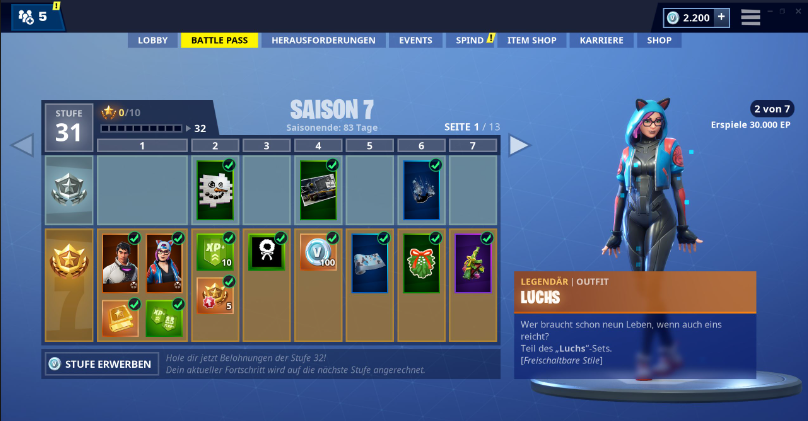What Was the First Game to Have a Battle Pass? Unveiling Gaming's Milestone
The concept of a battle pass has become a significant element in modern gaming, offering players a structured progression system and rewarding them with exclusive content. Many wonder which game pioneered this innovative feature. In this article, we will explore the origins of the battle pass and identify the first game to introduce this trend-setting concept. Join us as we delve into the history of gaming and uncover the groundbreaking title that started it all.

Fortnite Seson 1 Battle pass skin
I. Evolution of In-Game Progression
1. Early In-Game Systems: Gaming has long utilized various forms of in-game progression systems, such as experience points, leveling up, and unlocking achievements. These features engaged players and encouraged continued gameplay.
2. Introduction of Seasonal Content: The gaming industry recognized the appeal of offering time-limited content to keep players engaged. This led to the emergence of seasonal updates and events, laying the foundation for the future development of battle passes.
II. The Birth of the Battle Pass
1. Fortnite: Revolutionizing the Industry: Fortnite, developed by Epic Games, played a pivotal role in popularizing the battle pass model. In July 2017, Fortnite introduced its first battle pass, transforming the landscape of in-game progression and setting a new standard for multiplayer online games.
2. Unique Structure and Rewards: The Fortnite battle pass offered players a tiered system with multiple levels, each unlocking exclusive cosmetic items, emotes, and in-game currency. This innovative approach incentivized players to engage with the game, enhancing their gameplay experience.
III. Predecessors and Influences
1. Dota 2: The International Battle Pass: Although Fortnite popularized the battle pass concept, Dota 2, a multiplayer online battle arena (MOBA) game developed by Valve Corporation, introduced a similar system known as "The International Battle Pass" in 2013. This limited-time pass offered exclusive in-game items and contributed to prize pools for esports tournaments.
2. Mobile Games and Early Implementations: Several mobile games, such as Clash Royale and Vainglory, experimented with battle pass-like systems before Fortnite's breakthrough success. These early implementations laid the groundwork for the more refined and comprehensive battle pass models that followed.
IV. Impact on the Gaming Industry
1. Adoption by Other Games: Following Fortnite's immense popularity, numerous games across different genres embraced the battle pass model. Games like Apex Legends, Call of Duty: Warzone, and Rocket League introduced their own iterations, capitalizing on the appeal of structured progression and exclusive rewards.
2. Revenue Generation and Community Engagement: Battle passes have proven to be a lucrative revenue stream for developers and publishers. The model encourages player retention, fosters community engagement, and provides ongoing financial support for game development and esports tournaments.

Epic Fixed Fortnite's Battle Pass Issue
The introduction of the battle pass revolutionized the gaming industry, providing players with a structured progression system and exclusive rewards. Fortnite, with its groundbreaking battle pass implementation, pioneered this trend and redefined in-game engagement. While Dota 2's "The International Battle Pass" and early mobile game systems laid the groundwork, it was Fortnite that popularized the concept on a global scale. The impact of the battle pass model extends beyond Fortnite, with numerous games adopting similar systems to enhance player engagement and generate revenue. As the gaming industry continues